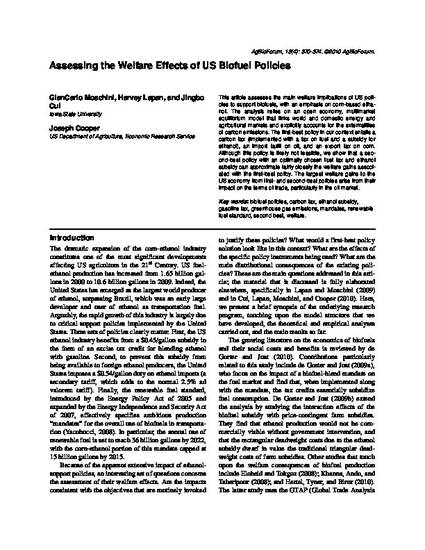
This article assesses the main welfare implications of US policies to support biofuels, with an emphasis on corn-based ethanol. The analysis relies on an open economy, multimarket equilibrium model that links world and domestic energy and agricultural markets and explicitly accounts for the externalities of carbon emissions. The first-best policy in our context entails a carbon tax (implemented with a tax on fuel and a subsidy for ethanol), an import tariff on oil, and an export tax on corn. Although this policy is likely not feasible, we show that a second- best policy with an optimally chosen fuel tax and ethanol subsidy can approximate fairly closely the welfare gains associated with the first-best policy. The largest welfare gains to the US economy from first- and second-best policies arise from their impact on the terms of trade, particularly in the oil market.
Available at: http://works.bepress.com/harvey-lapan/39/

This article is from AgBioForum 13 (2010): 370.